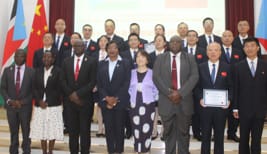By Web Desk
When peace negotiations commenced in Juba in mid-October 2019 between the delegation of the Sudanese government on one side, and the delegations of the Sudanese Revolutionary Front, and the Sudan People’s Liberation Movement-North on the other, I published an extensive article in December 2019 titled “Security Arrangements: The Achilles’ Heel of Peace and Democratic Transition!” (Sudanile, 10 December 2019). The central thesis of the article posited that, beyond the challenges of reaching a peace agreement on political and humanitarian issues at the negotiating table, security arrangements constitute the cornerstone and litmus test of the peace equation, as well as the Achilles’ heel of democratic transition. These arrangements, when agreed upon and implemented through a clear matrix, pave the way for strengthening a unified national army, while their neglect obstructs any earnest attempt to achieve sustainable peace.
Comprehensive security arrangements are crucial for ensuring national security and stability, as well as facilitating the safe return of displaced persons and refugees to their homes. Subsequent political developments and historical precedents have validated this thesis.
In this brief intervention, I argue that the recent disputes over the power-sharing allocations for the Juba Peace Agreement (JPA) signatories—particularly the controversy surrounding their 25% quota—have strained the military alliance between the army and the joint forces of the armed movements. In light of this, there is an urgent need to accelerate the implementation of the security arrangements outlined in the JPA.
It is critical to distinguish between political arrangements, such as power-sharing negotiations—a fundamental right and natural aspect of forming coalition governments—and security arrangements for integrating armies, which are an agreed-upon matter and a cornerstone of long-term structural reform. (In a subsequent article, I will address the challenge of negotiating security arrangements with the faction of the Sudan People’s Liberation Movement-North (SPLMN) led by Commander Abdelaziz Al-Hilu, and the prospects for reaching a peace agreement)


































